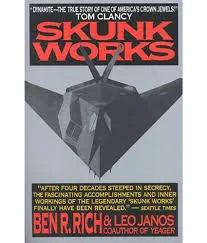Enterprise Expertise Management Systems and Organizational Reality
Introduction
Some of the early feedback I’m getting while researching and writing about enterprise expertise management systems is that some organizations might view such systems as disruptive, while others will be much more accepting.
In my research I’m trying to understand the characteristics of organizations that will impact their adoption of expertise management systems. The purpose of this article is to discuss how this situation might relate to automating some of the processes involved in expert location. The details suggested here are based on a review of systems that are currently being developed or marketed as well as a straightforward application of basic business process automation and workflow management techniques (I will be discussing these findings in more detail in a “white paper” I am currently developing).
My interest here is quite simple. I’m a consultant. Several related areas (e.g., Web 2.0, expertise management, and social networking) interest me as a focus for my own business development and professional networking. In order to help clients plan and implement useful and cost effective systems, I need to understand the technologies and business processes that are involved.
Jeremiah Owyang and I discussed similar issues in our January white paper when we discussed corporate adoption of web 2.0 technologies related to things like blogging and social networking. Hearing similar concerns voiced when discussing expertise management is not too surprising.
A Hypothetical Situation
Consider the following hypothetical situation. John, a young supervisor in an operating department of a large company, needs help interpreting a new government regulation he just heard about on a public radio broadcast. John thinks the regulation might impact how some safety equipment is tested, and that’s one of John’s area of responsibility, making sure safety equipment in his department is regularly tested.
John goes to his new boss Hector who just transferred into the operation from another company; Hector doesn’t’t know whom to ask and sends an email to his boss, Emilia, who (unknown to him) is out for the week.
Two days elapse. Emilia’s secretary finally returns the email suggesting in Emilia’s absence a call to a local sales rep near John’s operation who has a reputation for “…keeping track of government regulations.” That call from John to the sales rep takes another two working days to get returned since the sales rep is on the road. The sales rep says the regulation is a Federal one and that he only tracks local regulations. He suggests calling the CFO’s office at Corporate Headquarters which has staff that track regulations due to their impact on the cost of business and to compliance with Federal health and safety regulations.
The need for input is now several days old and has spilled into a new week. Because of the delay John meanwhile has had to make a decision about equipment testing and is hoping it is the right one; Federal safety inspector visits, depending on which political party is in power in Washington, can be onerous.
Also, John forgets to follow up the original request, which is now sitting in limbo at the CFO’s office. (Let us all hope that this lack of attention does not come back to haunt John!)
Potential Disruption
OK, I just made this situation up, but you get the idea. Not knowing whom to call may have cost and schedule implications for John’s employer, and John is concerned that he will be responsible. So where does this hypothetical “enterprise expertise management system” come in, and why might it be viewed as disruptive?
Let’s return to John’s original request. If his boss Hector had known to call the CFO’s office directly, the request would have been quickly answered and the changes to the testing of the health and safety equipment would have been made in compliance with the new regulations. But would Hector have called the CFO’s office without first “going through channels?”
In some organizations, that might become an issue. The CFO might be part of a different reporting structure from the division where John works. Emilia, Hector’s boss, might be put out somewhat if a request for an expert opinion or expert knowledge that has potential cost implications bypasses her without her knowledge. Yet she wasn’t in the office when the request from John came through and, failing explicit instructions, her secretary made a recommendation to John (which turned out to be wrong).
How an Expertise Management System Might Operate
What if an “enterprise expertise management system” were in place?
As before, John would come up with the question and, not knowing whom to ask, he would instead search the “expertise database” to find out who in the organization is potentially qualified to answer his question.
The system’s database will have already been populated with information about corporate experts and their expertise, possibly from several sources:
- Self nominations by people who consider themselves to be experts in one or more areas.
- Nominations by superiors who have come to understand the expertise of the people who report to them.
- Nominations by co-workers who respect the expertise of the people they work with.
- Automated nomination by application software that regularly scans and processes corporate information resources such as emails, documents, and directories.
In response to his query John finds three individuals listed. Each listing includes a description of that individual’s expertise, a description of how they came to be included in the system, and a summary of the feedback they have received so far on their performance when contacted as an “expert.”
All three work outside John’s department; he doesn’t personally know any of them. John then uses the system to formulate his request. The system helps him by leading him through a series of questions about the nature of the request, why an answer is needed, as well as a summary of the cost and schedule implications if an answer isn’t found. John formulates his question.
The system spawns three emails, each explaining the nature of the problem, who else has been contacted, and when John needs the answer.
All three of the “experts” receive an email telling them a question has been entered into their “expert task queue.” Here’s how the system might then operate:
- Expert Number One is busy and ignores the email; John’s system-generated email sits unopened in Expert Number One’s email “in box.” The time-till-response meter starts running for Expert Number One in the expertise management system since Expert Number One doesn’t know to check his browser based task queue. (Checking the task queue and opening an expertise request is one of the events the expertise management system automatically tracks.) After a set amount of time the expertise management system notes that Expert Number One hasn’t’t responded yet by logging into his expertise management task queue and resends the request to Expert Number One by email. The system also sends a note to John telling him that Expert Number One hasn’t responded. In addition, Expert Number One’s management can see via a read only “dashboard” reporting automatically generated expertise management system metrics that Expert Number One has not checked his expertise management system task queue. (They check these statistics regularly since they want to keep track of which departments and divisions are contacting their people for “expert advice;” they realize that responding to these requests takes time and, as we all know, “time is money.”)
- Expert Number Two is on a flight to Europe sleeping but has already entered an “away” message in the company’s email system. The expertise management system logs this fact and automatically informs John by email that Expert Number Two won’t be responding. The time-till-response meter does not start running for Expert Number Two. The system automatically generates a message to John asking him if he wants to add another expert to the list. John decides not to for the time being since he has just heard from Expert Number Three.
- Expert Number Three, an employee of the CFO’s office, receives the email while working at home after the kids have gone to sleep. She clicks on the email’s embedded link and the expertise management system displays the description of the request and the requester in Expert Number Three’s web browser. Expert number three checks the “respond now” box on the displayed browser form, types a short message to John, and suggests a time and number when she can be reached the next day.
- John’s management will see that he has initiated an expertise request when they check their browser based expertise management system “dashboard.” They will be able to track all requests to see which requests have been acted on and which have not been acted on. (The system provides them a drill down capability so if they want they can actually check the status of individual requests.)
John gets to work the next morning and opens his browser’s view into the expertise management system. He clicks on the “display outgoing request in process” button and sees the following list of messages:
- Expert Number One has not checked in to the expertise management system’s task queue. (The system asks John if he wants to re-initiate the request. He declines.)
- Expert Number Two is on his way to Europe and probably won’t be responding so the request has been automatically cancelled.
- John reads Expert Number Three’s message, picks up the phone, calls her, and his question is answered.
Later in the day the system asks John to rate the overall performance of the system on scales such as speed, quality of response, and completeness. The system automatically provides a summary of overall system performance to management. They see who is quick to respond, who forwarded a request on to another expert, and whose staff are being utilized — or over-utilized — by which departments.
How Disruptive Is This?
Now it is easy to see how such an open system could be viewed as stomping all over certain types of organizational and hierarchical customs. Here are some of the questions that are raised:
- Should management in one department be able to see how well experts in another department are working, and vice versa?
- Should people be keeping track of the time they devote to responding to the system (which might be considered in future budget and staffing decisions)?
- Are there certain types of expertise requests that the system should NOT be used for?
- Is it safe to rely on email for such a system?
- What kinds of records should be kept of the performance of the system?
- How open or public should the performance metrics be?
- Who should do the evaluation of the quality of response to expertise requests?
I don’t know all the answers to these questions but they are representative to some of the things I’m looking into as I continue my research.
If you would like to discuss these issues with me, please let me know by sending me an email at ddmcd@yahoo.com.
Copyright (c) 2006 by Dennis D. McDonald
Update on 2007-11-05 15:53 by Dennis D. McDonald
For a follow up post that responds to Luis Suarez’ comments, read What if Communities Don’t Share Their Expertise?


